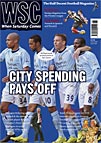 Dear WSC
Dear WSC
AFC Wimbledon fan Aled Thomas (Letters, WSC 267) bemoans people not knowing what to call his club. He would have enjoyed this exchange on Talksport on a recent Saturday when they decided to venture south of the Premier League, for a change. Ian Danter: “AFC Wimbledon could gain promotion to the Conference today.” Micky Quinn: “Is that the original club?” Danter (hesitantly): “Yes.” Quinn: “Do they still play at Plough Lane?” Why so knowledgeable?
Glyn Berrington, Brierley Hill
Search: ' Billy Davies'
Stories
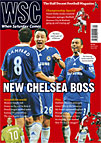 Forest and Derby may not be closest neighbours but time has created a twisted rivalry. Al Needham reports
Forest and Derby may not be closest neighbours but time has created a twisted rivalry. Al Needham reports
The relationship between Nottingham Forest and Derby Country may seem a little strange, but it’s actually no different to the ones you see on Jeremy Kyle on a weekday morning. So many elements bind them together, but it’s those very elements that drive them apart like inverse magnets.
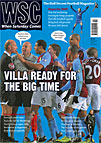 Dear WSC
Dear WSC
In response to Huw Griffiths’s letter in WSC 263, I would like to apologise to David Lloyd, the extremely popular fans’ liaison officer at Bristol City, for the flippant remarks I made in an article about the club in WSC 262. Sorry, Mr Lloyd. I would also like to apologise to my father, a Bristol City supporter for 60 years and, like Messrs Griffiths and Lloyd, an avid admirer of Paul Cheesley, for implying in the article that he cross-dresses in his potting shed. To put the record straight: my father has never owned a potting shed. Sorry, Father.However, I would like to take issue with Mr Griffiths’s claim that I have given up neither time nor money to support and represent the club in the last 15 years. In 2002, I bought and paid for the previous season’s away shirt and gave it to a friend of mine for his 40th birthday. Until unwrapping the gift, the recipient was like an excited schoolboy and cherishes it to such a degree that he has, to this day, neither worn the garment nor, as far as I know, taken it out of the packaging. Further, in 2007, I attempted, albeit unsuccessfully, to obliterate a Bristol Rovers graffito on the lavatory wall in a public house in Berlin using nothing more than my house keys and a briefly rediscovered passion for the Boys In Red. If Mr Griffiths were aware of the willingness of Bristol City stayaways in Germany to jeopardise long-term friendships and to commit acts of criminal damage in the name of the club, he wouldn’t have made such an unfounded accusation in a poor attempt to add some much-needed gravitas to the WSC letters page.
Matt Nation, Hamburg
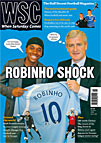 For half a century, celebrities have risked making fools of themselves with no need for reality TV, by playing football. But, as John Harding explains, it’s all in a good cause
For half a century, celebrities have risked making fools of themselves with no need for reality TV, by playing football. But, as John Harding explains, it’s all in a good cause
The lure of the football pitch for theatre folk has always been strong. Ever since professional football became a mass working-class attraction, variety artists have craved some of the allure attached to the game. Before the First World War, comedian George Robey, “The Prime Minister of Mirth”, organised charity fund-raising matches involving top football stars and music-hall favourites, which drew large crowds. After the war, the tradition continued in intermittent form with teams representing actors, the cinema trade and pantomime artists, dance bands and the pioneering women’s team, Dick, Kerr’s Ladies.
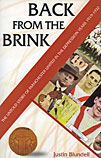 The Untold Story of Manchester United, 1919-1932
The Untold Story of Manchester United, 1919-1932
by Justin Blundell
Empire, £10.95
Reviewed by Joyce Woolridge
From WSC 245 July 2007
Manchester United’s recent affluence has been built upon two things: a ground that, according to Simon Inglis, has enjoyed one of the most “unhampered situations” of any major English stadium and two modern periods of success, under Matt Busby then Alex Ferguson. However, the move to Old Trafford in 1910, though it began auspiciously with the winning of United’s second title the following season, came close to putting the club out of business. It was poor timing to build a £60,000 stadium just before the outbreak of the First World War and the subsequent suspension of League football, though the wealthy brewer, John Davies, who undertook the relocation could hardly have known what lay in store.